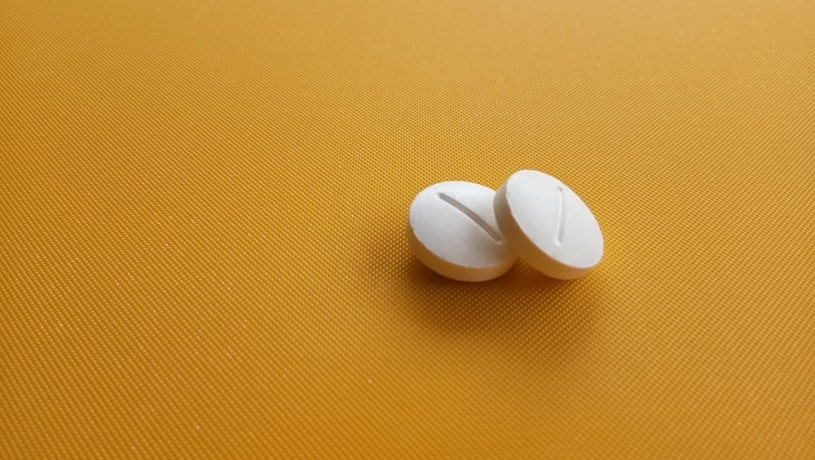Oxycodone is a powerful opiate, and overdosing on it can be lethal. Data shows that prescribed opiates cause more than 40% of all overdose deaths.
An Oxycodone overdose can result in respiratory problems and depression of the central nervous system. Unfortunately, this can be fatal. Other symptoms include sleepiness, nausea, and vomiting. In the case of an overdose, call 911.
Table Of Contents:
Oxycodone Overdose: How Much Can Be Lethal?
In determining the potency of an opioid drug, a unit known as morphine milligram equivalents (MME) can be used. It describes the dosage of morphine in milligrams that would be required to produce an equal effect to another opioid.
Information from some studies has shown that over 50 MME per day will at least double the risk of an OD compared to daily doses of less than 20 MME. With Oxycodone, 50 MME is equivalent to 33 mg of the drug, which can be roughly acquired with two Oxycodone 15mg tabs.

With Hydrocodone, another opioid, it is 50 MME equals 50 mg of the drug. It shows the difference between Hydrocodone and Oxycodone in terms of potency.
At 60 mg of Oxycodone every day, the patient will be consuming 90 MME each day. One study showed that the average dosage of opioid drugs in patients who had an Oxycodone overdose death was 98 MME per day.
However, when it comes to Oxycodone LD50, it was found to be 426 mg/kg in mice. In humans, toxic effects are seen starting from 0.14mg/kg when it is taken orally.
It is important to note that despite this information, there is no specific dose of Oxycodone that will cause an OD in anyone. Numerous health factors can influence how a dose of the medication affects the body, including genetics, how long they have been using the drug and the average dosage they consume, whether any other medications are being used alongside it, and others. For instance, those abusing the medicine for a long time are likely to have built a tolerance allowing them to abuse higher doses. Opioid-naive users may overdose at a relatively low dosage.
Risk Factors for OxyContin Overdose
As earlier mentioned, other health factors besides the absolute dose of a medication can predispose to Oxycodone overdose. These factors can include the use of other medicines, as well as chronic use of OxyContin. These will be discussed in detail below.
Abuse
There is an interesting relationship between the abuse of opioids and the risk of an OD. Abuse tends to be associated with chronic use that results in the development of tolerance.
Simultaneously, those that abuse the medication are the most likely group of individuals to suddenly elevate the dosage they take, which can predispose significantly to an overdose. Moreover, chronic abusers may start to snort Oxycodone. It is a very dangerous practice, which will more likely lead to overdose and more severe side effects of OxyContin.
Relapse
Getting help for an addiction can be extremely difficult, and maintaining abstinence even with resources and services provided by rehab centers can be challenging for many recovering addicts. As a result, they may relapse even after going through all unpleasant Oxycodone withdrawal symptoms.

For those who had only abstained for a short period, the risk is much lower. However, those who had abstained for months will have had their tolerance return to normal. If they then attempt to abuse their usual dose, it may result in an Oxycodone overdose.
Mixing drugs
For many substances, combining OxyContin with alcohol or certain other drugs can cause an interaction that results in an OD and death, even at doses far from the Oxycodone LD50. That is because opioids such as Oxycodone are CNS depressants with the risk of causing potentially fatal side effects such as respiratory depression, even below the Oxycodone LD50. When this drug is combined with other CNS depressants such as alcohol, other opioids, or benzodiazepines, it increases the risk of the most severe complications occurring.
Signs of Oxycodone Overdose
It is crucial to be able to identify the Oxycodone overdose symptoms. These can save a person’s life as an OxyContin overdose, if not treated, will frequently be fatal. These symptoms tend to demonstrate the CNS depressant effect of the opioid, though amplified to a dangerous extent.
The Signs of Oxycodone Overdose Include:
- Shallow breathing
- Dizziness
- Fatigue
- Slurred speech
- Lowered heart rate
- Loss of consciousness
- Coma
The warning signs of an OD are severe breathing problems and coma. The slowed breathing happens from a chain of events. First, the brain slows down dramatically. Then, it can’t send signals to the respiratory system. As a result, the breathing process shuts down, and the oxygen level of the body drops. Lack of oxygen can lead to permanent damage to the brain and other organs. Therefore, the body can face death as an outcome.
Long-term use of the opiate can also be lethal as it may result in heart or kidney failure. In addition, as the drug is highly addictive, the cravings can affect the user’s emotional well-being and social life. The cravings are the result of mental dependency as well as physical pain.
Oxycodone Overdose Death
Overdose on opioids is quite common, particularly with prescription opioid drugs. In 2019 alone, there were 70,630 deaths related to drug overdose recorded in the United States, according to the Centers for Disease Control and Prevention. In that same year, over 14,000 deaths were linked to prescription opioid use. It is interesting that heroin abuse is the primary focus, even though prescription opioids are relatively more accessible for most, and 14,019 deaths linked to it in the same year — essentially an equal value.

It shows that this class of drugs is a major problem, as opioids generally take up a major proportion of the yearly OD deaths, at 70.6%. Unfortunately, there is little information on OxyContin overdose deaths alone, as it tends to be grouped with other prescription opioids.
This Oxycodone overdose death information points to the importance of proper awareness and education on not just opioids in general but prescription opioids in particular. These drugs should be used only as prescribed by a medical doctor.
Oxycodone Overdose Treatment
The first thing that one should do in the case of an overdose is call 911 immediately. It should always be the first line of action once any drug’s adverse health effects are noticed, such as shallow, slow breathing, and extreme drowsiness. These effects can be fatal or result in severe damage to the health.
Right after calling emergency services or while still on the phone with them, naloxone (Narcan) should be administered if it is available. Don’t wait for emergency services to arrive before doing this. This drug essentially reverses the binding of the opioid in the CNS and can be life-saving.
At the Emergency Room, the Treatment Will Usually Involve:
- Stomach pumping
- Breathing assistance
- Constant monitoring
Following an OD, the patient needs to get help from a rehab center. A center will have services and resources that will help on the path to recovery and improving the patient’s health.
Overdose Prevention
The best form of prevention is for a patient to seek help from an addiction treatment center and abstain from the use of the drug. These centers specialize in the treatment of addiction and will be able to help an addict towards achieving better health and recovery.
For patients who may not have direct access to addiction centers, they should contact their medical doctor, who may be able to put them in contact with other addiction services and resources.
Hope Without Commitment
Find the best treatment options. Call our free and confidential helpline
Most private insurances accepted
Page Sources
- Centers for Disease Control and Prevention, Calculating Total Daily Dose of Opioids for Safer Dosage, https://www.cdc.gov/drugoverdose/pdf/calculating_total_daily_dose-a.pdf
- United States Food and Drug Administration, Highlights of Prescribing Information, 2018, https://www.accessdata.fda.gov/drugsatfda_docs/label/2018/200535s014s015lbl.pdf
- Boyle, K. L., & Rosenbaum, C. D. (2014). Oxycodone overdose in the pediatric population: case files of the University of Massachusetts Medical Toxicology Fellowship. Journal of medical toxicology : official journal of the American College of Medical Toxicology, 10(3), 280–285. https://www.ncbi.nlm.nih.gov/pmc/articles/PMC4141922/
- MedlinePlus, Hydrocodone/Oxycodone overdose, 2021, https://medlineplus.gov/ency/article/007285.htm
- National Library of Medicine National Center for Biotechnology Information, Pubchem, Oxycodone. https://pubchem.ncbi.nlm.nih.gov/compound/Oxycodone
- Mattson, C. L., Tanz, L. J., Quinn, K., Kariisa, M., Patel, P., Davis, N. L. (2021). Trends and Geographic Patterns in Drug and Synthetic Opioid Overdose Deaths — United States, 2013–2019. MMWR Morb Mortal Wkly Rep; 70, 202–207, https://www.cdc.gov/mmwr/volumes/70/wr/mm7006a4.htm?s_cid=mm7006a4_w#F1_down
- Centers for Disease Control and Prevention, Drug Overdose: Prescription Opioid Overdose Death Maps, 2021, https://www.cdc.gov/drugoverdose/deaths/prescription/maps.html
- National Institute on Drug Abuse, Overdose Death Rates, 2021, https://www.drugabuse.gov/drug-topics/trends-statistics/overdose-death-rates
- The United States Attorney’s Office: District of Nevada, Heroin and Opioid Awareness, 2021, https://www.justice.gov/usao-nv/heroin-and-opioid-awareness




